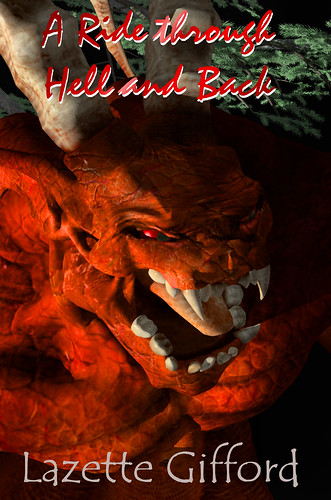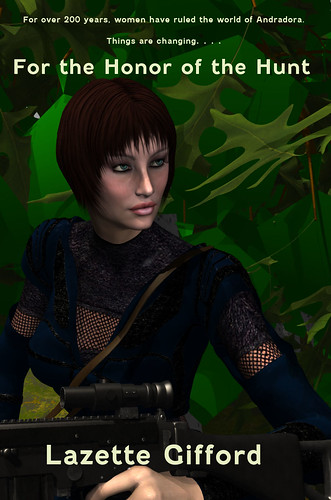
Let's talk about moving ahead in a plot when you seem to be stuck. This is part of the material in my 2 Year Novel Course (now on hiatus). You will see references to the 2YN course in it, but ignore those and see if anything else helps you. I might post a couple more parts to this this week.
I hope it might help some of you.
Getting Unstuck, Part 1
What to do when it doesn't work
If you have reached a point with your story where you want to scream, tear up and erase everything remotely related to it and never write again, then the next three classes are for you. The rest of you can go merrily along in your novel creation, and worry about these next three if you hit a problem spot like I describe here.
If you are having trouble though, realize you are not alone. At some point every writer will hit that wall. For some people, it translates into Writer's Block, stopping work on every other project as well. It may not be possible to figure out which bit of writing is the culprit, because getting blocked on one story can freeze up the entire creative conduit. For others, it might result in a bad mood and a general dislike of writing, and a voluntary break from the work -- but in the end, the result is the same.
There are a number of factors which might have brought you to this stage. I'll go over some of them, but there can be personal reasons and no one but you can find those answers. It may be in the nature of the story you are telling -- either not interested enough or far too personal are two likely culprits. Sometimes recognizing the problem can be the best step to getting past it.
If you reach the point where you think you hate everything about your 2YN project, there are some things to consider which might help you move on as we prepare for year two. First is the realization that at some point you have to commit to doing the work, and not only apply yourself to the fun parts, but also determine to work through the difficult parts as well. Every novel has points where the story stops, the path becomes muddy -- even with a great outline -- and it's hard to decide which way to go, or how to get to the next important step.
The first thing to do is take a step back from the story and remember this is a single story, and work or fail, it will not be what makes your career. At the absolute worst, you'll realize this story is not the one for you. The chances are you will still have learned a few things about how to approach a novel which can help you in the future.
But let's suppose you aren't going to abandon the novel. You've only hit a bad spot, and there may be a way to get past it.
Problem 1: Trying too hard
2YN is a huge undertaking. For some, it is a first attempt at a complete, original novel. You may feel it lacks perfection, and you don't have a reason to go on. You can't make this work into the story you want to tell.
No story will ever be perfect. You cannot possibly recreate the vision in your head just by using written words. Accept this truth from the start, and then do your best to work within the parameters of the art.
Your 2YN story is no more or less important than any other novel you'll write. It's a learning experience, as all novels are. If you give up, rather than finish and fix the problems, you are not going to learn some of the things you need to.
Get the story written down. This is your most important job at this point. Don't worry about whom you are going to please. This is the first draft.
Problem 2: The time factor
In November, many people take part in NaNoWriMosm -- National Novel Writing Month, the hardest single event for writers (www.NaNoWrimo.org). A novel in a week or even the three day novel writing events are not as difficult because it's easier to keep your attention focused on intense writing for a short time. The actual word count is less important than the amount of work the person puts into it. Some people write faster than others, but someone writing 200 words an hour can be working just as hard at it as someone writing 1000. NaNo, even if the word count is about the same for the shorter events, is sometimes far more difficult for people to maintain.
This may be the problem you are facing with 2YN. It might not be the actual work itself, but rather the time it has taken to get here. I like to leap into a story as soon as I have a good idea of what I want and need for it. Not being able to do so with this class meant I had to find other projects to work on as well. And this, in turn took me farther from the initial rush of excitement that comes as a story idea emerges from the morass of possibilities.
There is something else to consider at this point. Sometimes when you get into professional levels of writing, what you write and when you write is no longer completely in your control. Publishers will expect you to write material to their timelines and often with their input on what you can create. Prepare to work under those conditions by not allowing yourself to be stopped now.
What can you do now to get moving again?
Go back over all the preparation work for the novel. Tweak it; play with the characters, re-examine the themes and read anything you may have already written. Do so with the intention of finding the spark that started you on the path to writing this story.
Don't worry about pleasing anyone but yourself. At this phase all you have to do is tell a story you enjoy.
And beforeI forget, I should mention that all three of the Silky books are now available at Smashwords for $1.99 each. These are YA fantasy, about which author Holly Lisle wrote:
"Exciting, complex and richly textured, with a world you'll believe and a protagonist you have to cheer for -- Silky is wonderful." Holly Lisle (Quote from original 1998 Embiid Publishing release of book 1)




